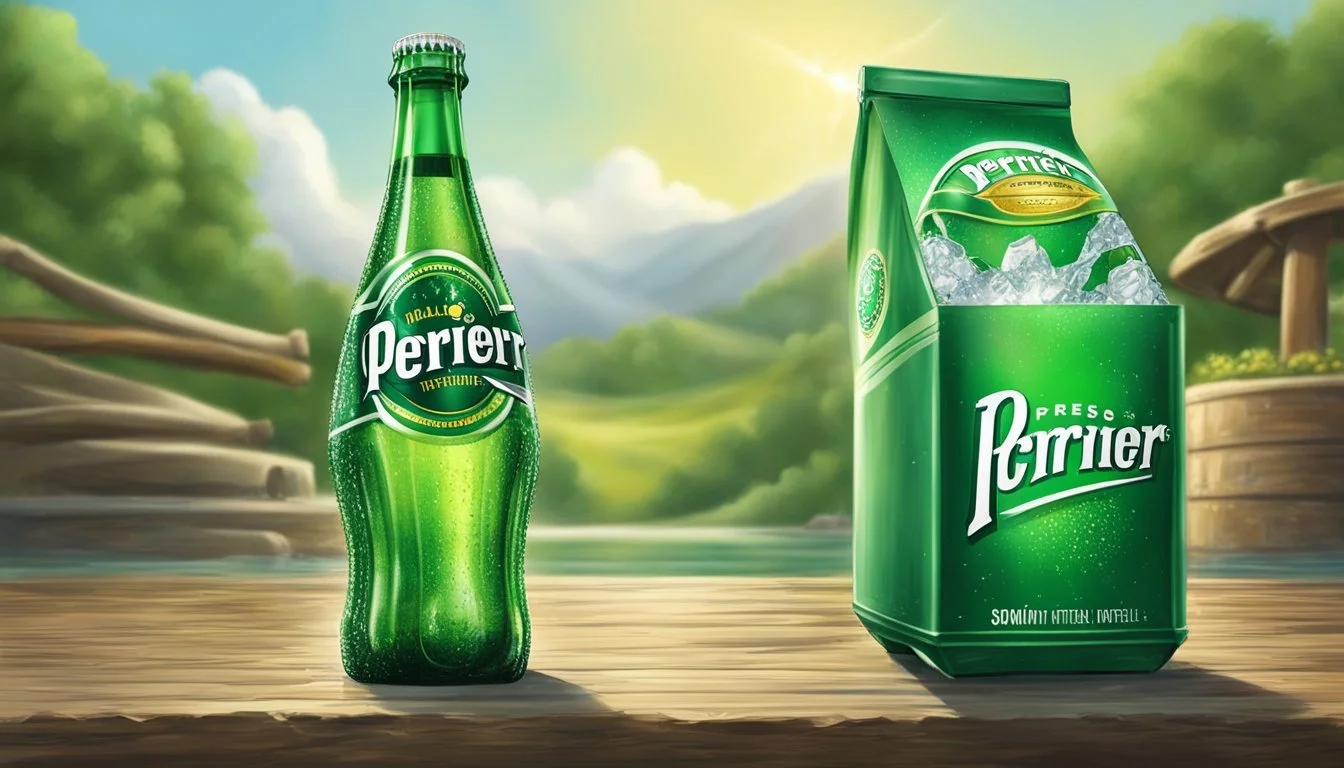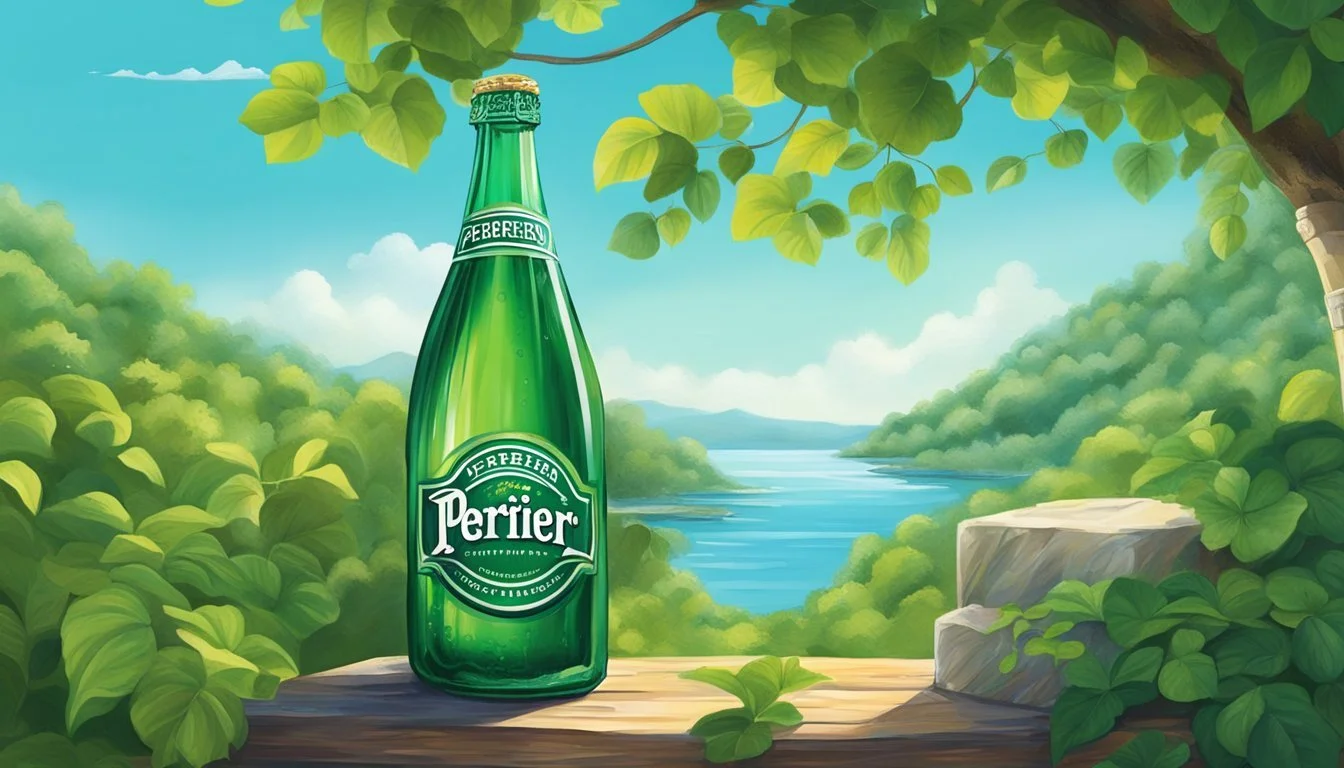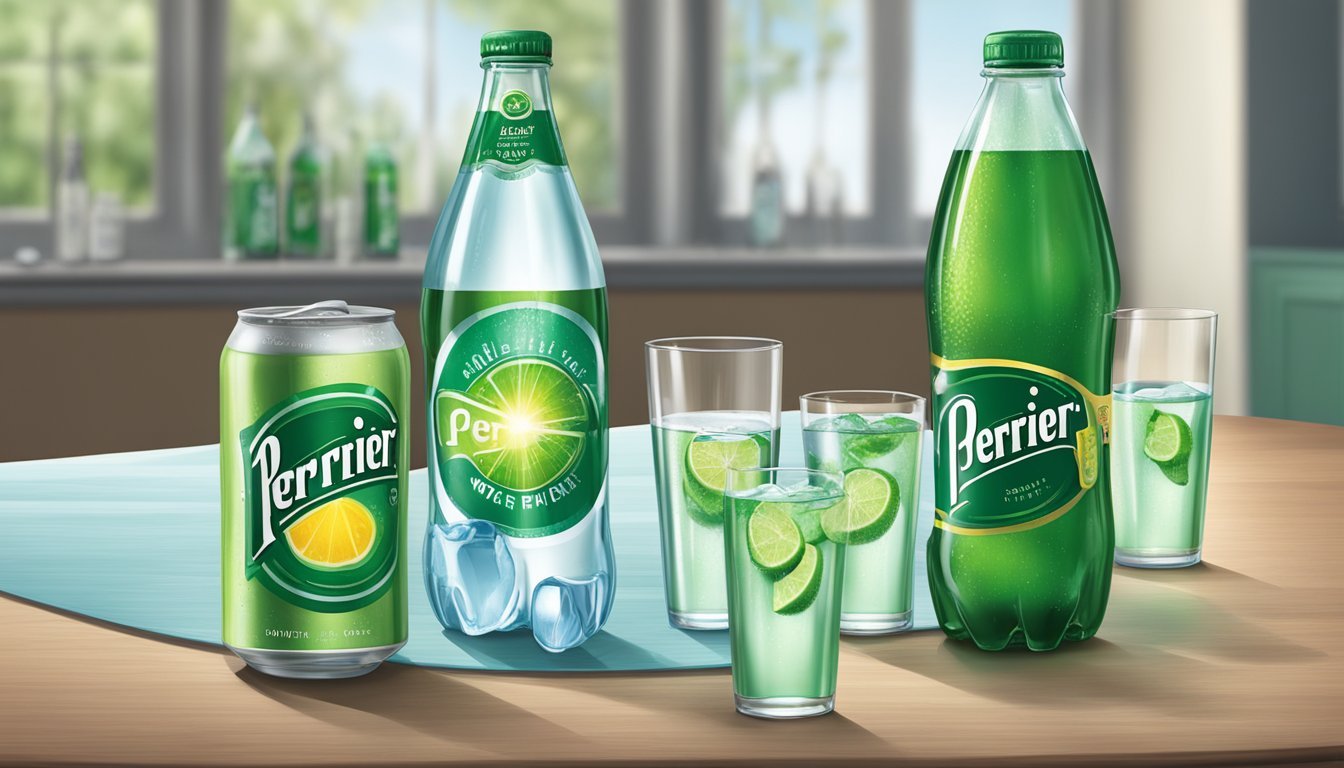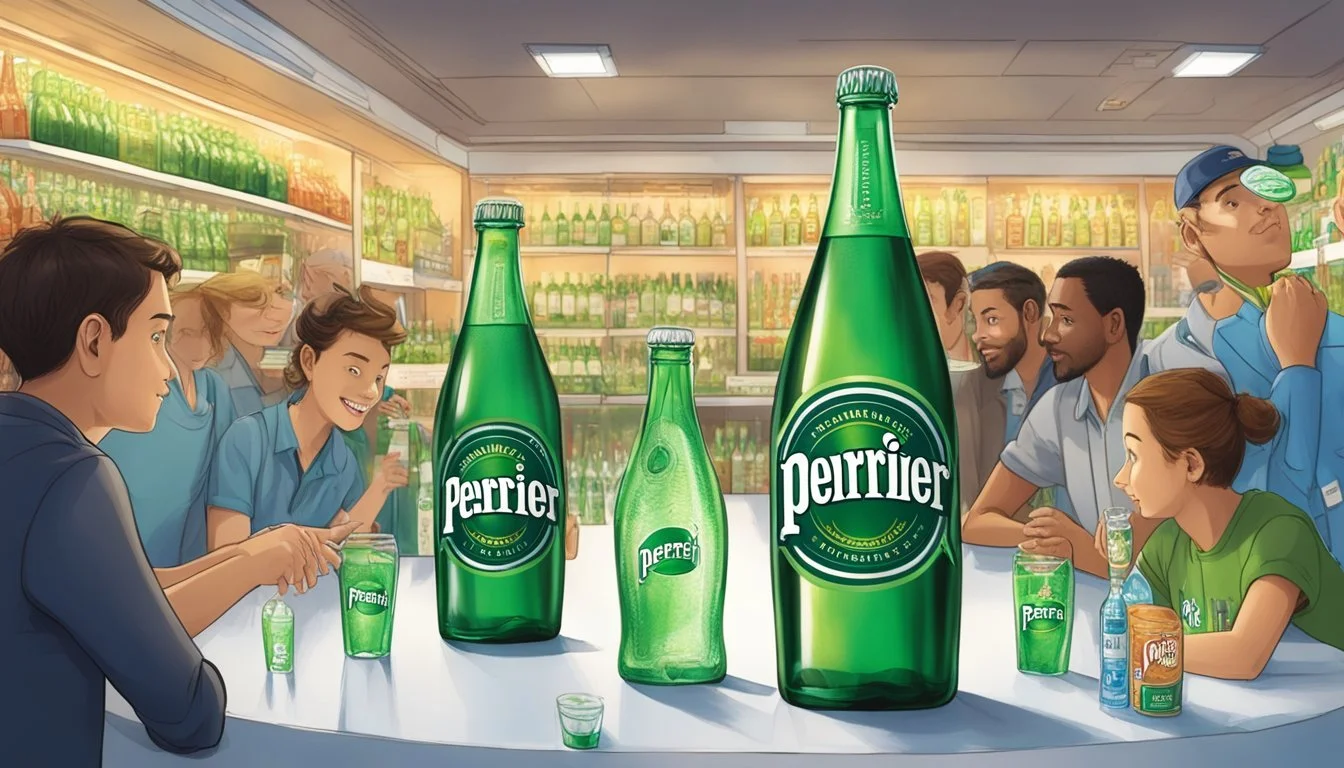Perrier vs. The Well
Which Bottled Water is Better for You?
In the bustling world of bottled beverages, consumers are often faced with a choice between household names and emerging brands. Perrier, a staple in the bottled water market known for its natural carbonation and timeless appeal, stands in competition with The Well, a newer entrant promising purity and innovative filtration. When it comes to deciding which bottled water is better, the answer largely depends on individual preferences for taste, carbonation, and brand ethos.
Perrier boasts a rich history, offering a unique, naturally sparkling water that's been enjoyed worldwide for decades. Its high market share and consistent quality make it a reliable choice for those who appreciate a crisp, effervescent drink. Meanwhile, The Well emphasizes its advanced filtration processes and commitment to providing water free from additives, appealing to health-conscious consumers who favor still water over sparkling.
This comparison engages readers to explore the nuanced differences between these two brands. Whether drawn to the classic allure of Perrier or the modern simplicity of The Well, understanding their distinct qualities helps consumers make an informed choice.
The Rise of Bottled Water
The rise of bottled water can be traced back several decades, reshaping the beverage industry. In the early years, bottled water was primarily seen as a luxury item, often imported and consumed by high-end consumers.
By the 1980s, brands like Perrier played a significant role in popularizing bottled water. Successful marketing campaigns and a growing health consciousness among the public contributed to this shift.
The competition between bottled water brands intensified in the following decades. The market saw an influx of both international and local players, each vying for market share. Sales soared as consumers sought alternatives to sugary soft drinks and tap water.
Several factors have driven the bottled water boom:
Increased awareness of health and wellness
Perceived safety and purity
Convenience of packaged water
Effective marketing campaigns
The U.S. market for bottled water has grown significantly. For example, in 2019, Perrier reached nearly $300 million in sales with a 9.2% market share.
While bottled water offers convenience and perceived purity, this boom has also raised questions about environmental impact and sustainability. Brands are now exploring ways to address these concerns, including eco-friendly packaging and sourcing practices.
The preference for bottled water over tap water has become a notable trend, with many consumers viewing bottled options as safer and more reliable, despite the higher cost.
Understanding Mineral Water
Mineral water, derived from natural springs, contains essential minerals like calcium, magnesium, and potassium. These minerals, collected during the water’s journey through volcanic rocks, offer health benefits and purity levels often superior to tap water.
Source and Purity of Mineral Water
Mineral water is sourced from natural springs that are often protected from environmental pollutants. These springs may originate from volcanic activity, which contributes to the water's mineral content. Part of its appeal is the pure state of the water, as it is not subjected to extensive chemical treatments.
Perrier, for example, is extracted from a single, protected source in Vergèze, France. This pristine extraction method ensures that the water retains its natural carbon dioxide bubbles, setting it apart from other waters that may have carbonation added artificially.
Health Benefits and Mineral Content
Mineral water is prized for its health benefits, primarily due to the presence of essential minerals. Calcium supports bone health, magnesium aids in muscle function and heart health, and potassium helps regulate blood pressure.
Healthline highlights that drinking mineral water can enhance digestion and circulatory health. The mineral comparison between brands shows that Perrier contains these minerals in varying amounts, beneficial for daily nutritional needs. The naturally occurring carbon dioxide in Perrier also adds a refreshing fizz, enhancing the drinking experience.
Mineral Water vs. Tap Water
While tap water is extensively regulated by the EPA to maintain safety standards, it may contain trace amounts of chemicals like chlorine, used for purification. Tap water can also be found with contaminants such as lead, depending on the piping infrastructure.
In contrast, mineral water often undergoes minimal processing. This ensures it maintains a pure and rich mineral profile. In brands like Perrier, the presence of minerals like sodium and magnesium is higher compared to tap water, providing added health benefits like improved digestion and cardiovascular support.
Consumers might choose mineral water over tap water due to concerns about safety and a preference for the natural mineral content that supports various health aspects.
Perrier: A French Classic
Perrier is a well-known brand of sparkling mineral water from France. This section explores Perrier's history, its manufacturing process, and the taste profiles and varieties that have made it a popular choice worldwide.
The History and Origin of Perrier
Perrier has its roots in Vergèze, a village in southern France. The spring was first exploited by local residents but gained significant acclaim when Napoleon III authorized its exploitation. The brand as we know it today was established in the early 1900s by a British doctor named Sir John Harmsworth. Over the years, Perrier has become synonymous with fine French sparkling water.
Perrier's Manufacturing Process
The journey of Perrier from spring to bottle is precise and meticulous. The water is naturally carbonated, but during bottling, the water and gas are separated and then recombined to ensure consistent bubbles in every bottle. Rigorous quality control measures are maintained throughout the process, ensuring the highest standards.
Taste Profile and Varieties
Perrier is celebrated for its crisp and refreshing taste, characterized by its distinctive carbonation. Unlike sodas, Perrier contains no sugar, making it a healthy alternative. The brand also offers flavored varieties like grapefruit, lime, and peach, which retain the natural mineral essence while providing a hint of fruit flavor.
The Well - An Overview
"The Well" is known for its natural spring water, which boasts purity and a balanced mineral content. Key considerations include its sustainable sourcing practices and the health benefits tied to its water quality.
Sourcing and Sustainability
"The Well" sources its water from natural springs. These springs are carefully selected for their high purity levels and naturally occurring minerals. The brand emphasizes minimal environmental impact by using sustainable drilling practices that avoid over-extraction.
To ensure long-term viability, "The Well" conducts regular assessments of water tables. This approach fosters responsible, eco-friendly extraction methods aimed at preserving the natural environment.
Packaging is another sustainability focus. Using recyclable materials and reducing plastic waste are integral parts of their strategy. Additionally, low-emission transportation methods are employed to minimize carbon footprint.
Health Impact and Water Quality
Health benefits are a significant selling point for "The Well." The water is known for its balanced mineral content, contributing to essential daily nutrient intake. Regular testing guarantees high water quality, free from contaminants.
Compared to municipal water, "The Well" offers a natural taste, devoid of chemical additives. The minerals present, like calcium and magnesium, are vital for maintaining overall health.
The absence of industrial pollutants and a rigorous purification process further ensure that the water meets stringent health standards. This dedication to quality ensures a safe and refreshing experience for consumers.
Comparative Analysis of Perrier and The Well
Perrier and The Well are two leading bottled water brands that cater to different preferences in mineral content, carbonation levels, taste, brand perception, and pricing.
Mineral Content and Health Benefits
Perrier is well-known for its natural mineral content, sourced from the Vergèze spring in France. It contains significant levels of calcium, magnesium, and sodium, which contribute to various health benefits such as bone health and proper muscle function.
The Well, on the other hand, focuses on balanced hydration with added electrolytes. Its formula aims to align with the body's natural pH level, providing a more stabilized intake of essential minerals. This difference means that while Perrier offers robust natural minerals, The Well provides a tailored approach to hydration that can appeal to those looking for balanced mineral intake.
Taste and Carbonation Levels
The taste and carbonation levels of Perrier and The Well differ significantly, catering to varying consumer preferences. Perrier offers a distinctive effervescence with fine bubbles that many find refreshing. Its flavor profile carries a subtle hint of minerals, making it a favorite among those who enjoy a crisp, sparkling taste.
The Well, typically a non-carbonated water brand, focuses on pure, clean taste without the added sparkle. This makes it suitable for individuals who prefer still water over sparkling options. The absence of carbonation also means The Well has a smoother mouthfeel, contrasting with the lively fizz of Perrier.
Marketing and Brand Influence
Perrier positions itself as a premium and sophisticated brand, often associated with lifestyle and elegance. Its marketing campaigns frequently depict luxury and refinement, helping it establish a strong market presence among upscale consumers.
The Well, meanwhile, targets health-conscious and active individuals, emphasizing its benefits in hydration and electrolyte balance. Its brand influence thrives on promoting wellness and fitness, making it popular among athletes and health enthusiasts.
Price Comparison and Value Proposition
When comparing prices, Perrier generally falls into the higher-priced category due to its premium positioning and natural mineral content. Its value proposition is tied to its quality, taste, and brand reputation, making it an investment for those seeking a luxurious hydration experience.
The Well usually offers a more budget-friendly option, focusing on affordability without compromising on essential hydration benefits. Its value proposition centers around providing balanced electrolytes and a clean taste, making it accessible to a broader audience seeking effective hydration at a reasonable price point.
Both brands offer distinct value propositions that cater to different consumer needs and preferences.
Consumer Considerations
When choosing between Perrier and The Well, consumers often evaluate factors like environmental impact and how well the water pairs with food and beverages. These aspects can significantly influence their purchasing decisions.
Environmental Impact and Eco-Friendliness
Consumers today are increasingly concerned about the environmental impact of their purchases. Perrier, a sparkling mineral water, has been focusing on sustainability. Its glass bottles are recyclable, and the brand has initiated steps to reduce its carbon footprint.
The Well, on the other hand, emphasizes eco-friendly packaging and sustainable sourcing. The company often uses biodegradable or recycled materials for its bottles, appealing to environmentally conscious consumers. Both brands highlight their low carbon emissions during production, but it’s crucial for consumers to verify these claims through audits and certifications.
Pairing with Food and Beverages
When it comes to pairing with food, both Perrier and The Well have their unique strengths. Perrier's sparkling mineral water, with its distinctive effervescence and mineral blend, pairs excellently with rich wines and gourmet foods, adding a refreshing counterbalance. It’s also a popular choice for cocktails, bringing a crisp, bubbly texture to drinks.
The Well, offering both still and sparkling options, is versatile for various meals and beverages. Its clean taste complements a wide range of dishes from light salads to hearty meats. For those who enjoy fine dining, the neutral profile of The Well’s waters can enhance flavors without overwhelming the palate.
In summary, both brands cater to specific consumer preferences, from eco-conscious choices to gourmet food pairings, offering options that align with modern lifestyle needs.
Final Thoughts
The choice between Perrier and The Well ultimately depends on individual preferences. Both brands offer unique qualities that distinguish them in the bottled water market.
Perrier is known for its natural carbonation and mineral content. It has a slightly lower pH level than some other brands, making it more acidic.
The Well emphasizes purity and sustainability, sourcing its water from artesian wells. This brand often appeals to consumers who prioritize environmental concerns and minimalistic design.
Consumers may consider various factors in their choice:
Taste: Perrier has a crisp and refreshing taste due to its natural carbonation. The Well's taste is often described as clean and smooth.
Mineral Content: Perrier contains notable minerals like calcium and magnesium. The Well focuses on providing pure water with low mineral content.
Packaging: Perrier's iconic green bottles are instantly recognizable. The Well often uses eco-friendly packaging to reduce its environmental impact.
Price can also be a deciding factor, with Perrier generally being more expensive due to its branding and international presence. The Well may offer a more cost-effective option for those seeking high-quality water without the premium pricing.
Individual needs, such as hydration goals, dietary preferences, and sustainability concerns, play a crucial role in determining the better option between these two brands.
More About Perrier
Icelandic Glacial vs Perrier: Which Bottled Water is Better?
Mountain Valley Spring Water vs Perrier: Which Bottled Water is Better?
Perrier vs Kirkland Signature: Which Bottled Water is Better?
Perrier vs Richard's Rainwater: Which Bottled Water is Better?
Perrier vs Whole Foods Italian Still Mineral water: Which Bottled Water is Better?
More About The Well
Cascade Mountain vs The Well: Which Bottled Water is Better?
Hawaiian Springs vs The Well: Which Bottled Water is Better?
Icelandic Glacial vs The Well: Which Bottled Water is Better?
Mountain Valley Spring Water vs The Well: Which Bottled Water is Better?
Nestle Pure Life vs The Well: Which Bottled Water is Better?
Richard's Rainwater vs The Well: Which Bottled Water is Better?
The Well vs Kirkland Signature: Which Bottled Water is Better?
The Well vs Talking Rain AQA: Which Bottled Water is Better?
Whole Foods Italian Still Mineral water vs The Well: Which Bottled Water is Better?







